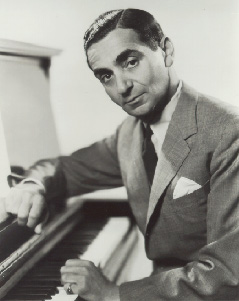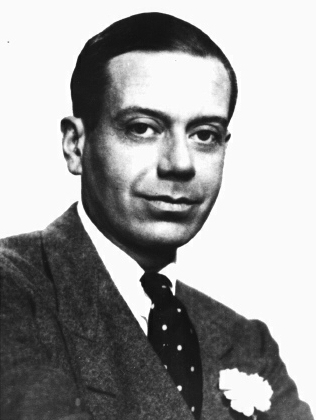This edition of Riverwalk Jazz celebrates the work of two American songsmiths, Cole Porter and Irving Berlin. They were alike in their prolific output and in the high ratio of hits they produced. And, at a time when most songwriters worked with lyricists who put words to their music, Porter and Berlin wrote both words and music for their compositions.
London-based vocalist Nina Ferro joins The Jim Cullum Jazz Band on the Irving Berlin classics — "Puttin' on the Ritz" and "How Deep is the Ocean?" and on Cole Porter's "Let's Do It," "Night and Day" and "Just One of Those Things."
As the composer of such quintessentially American songs as "White Christmas" and "Easter Parade", it was once famously said of Irving Berlin, "He has no place in American music. He is American music!" In spite of his uncanny ability to capture the sensibility of America, Berlin was born in Belarus, formerly a province of the Soviet Union. He was five in 1893 when he emigrated to the U.S. with his family, and he spent his childhood in a tenement on Cherry St. on Manhattan's Lower East Side.
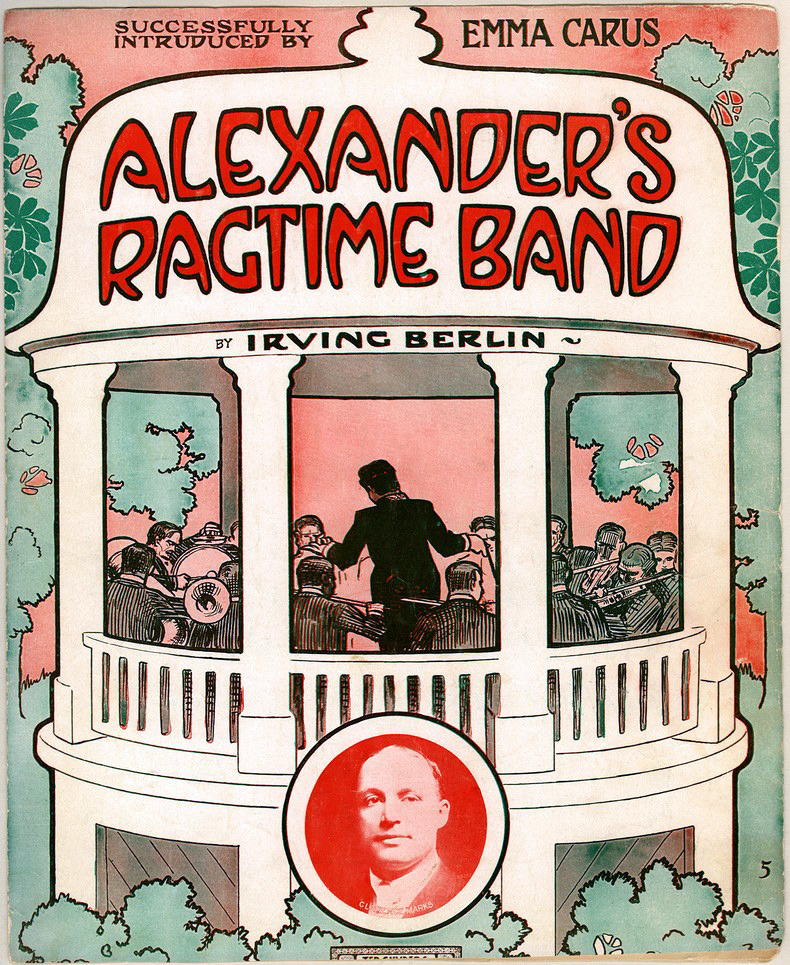
"Alexanders Ragtime Band" sheet music, 1911. Image in public domain.
Berlin's first successful song "Alexander's Ragtime Band" sold over a million copies in sheet music in 1911. Only 23 years old, Irving Berlin was being touted as the "King of Ragtime."
Over the next five decades, Irving Berlin composed ballads, dance numbers, novelty tunes and love songs that defined American popular song. He published close to 1,000 songs during his lifetime. Once a reporter gushed to him, "You must have written more songs that anyone else in the world!" And he said, "I don't know about that, but I sure wrote more failures than anyone else!"
Irving Berlin was equally at home writing for Broadway and Hollywood. He wrote seventeen complete scores for Broadway musicals and revues, and contributed material to six more.
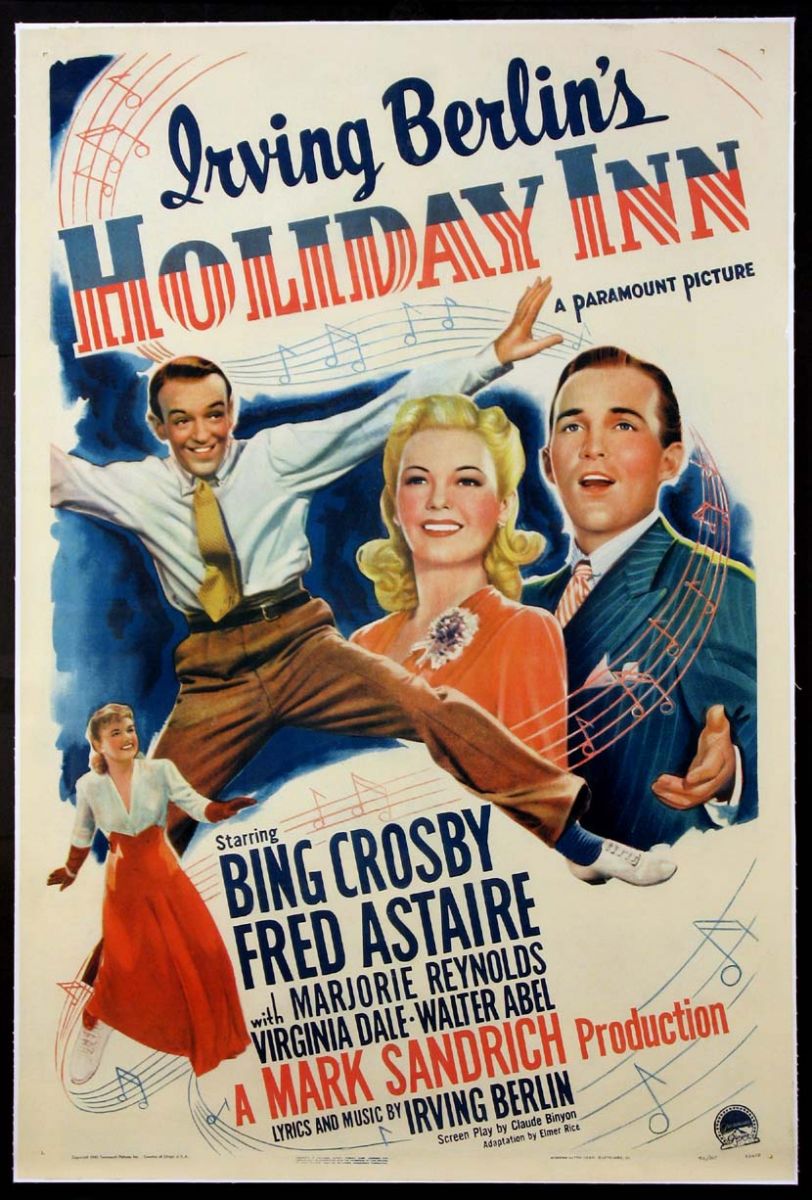
Holiday Inn movie poster, 1942. Image courtesy imdb.
Among the shows featuring all-Berlin scores are: The Cocoanuts, As Thousands Cheer, Louisiana Purchase, Call Me Madam and Annie Get Your Gun. Among the classic Hollywood movie musicals with scores by Irving Berlin are: Top Hat, Follow the Fleet, Alexander's Ragtime Band, Holiday Inn, This is the Army, Easter Parade, White Christmas and There's No Business Like Show Business. Irving Berlin's Oscar-winning song "White Christmas" (introduced by Bing Crosby in the 1942 film Holiday Inn) along with "Blue Skies" and "Always," are among the most-recorded songs in American history. Berlin's "God Bless America" remains the anthem of choice for many Americans.
Irving Berlin's motto was "give the people what they want to hear." He had the ability to know what that was, and was able to change with the times as the years rolled, keeping up with trends in American taste and style. Songwriting was never easy work for Berlin, but just when he thought he'd never write another hit song, he'd come up with a new multi-million seller. Irving Berlin lived to the age of 101. He died in 1989 in New York City.
Cole Porter could not have had a more different childhood from the hard life Irving Berlin experienced.
Cole was born to a wealthy family in Peru, Indiana where he grew up on his grandfather's estate, Westleigh Farms. At Yale, Cole distinguished himself as a member of the Whiffenpoofs, the Mince Pie Club, and the Wigwam and Wranglers Debating Club.
Cole loved to make people laugh with his clever ditties. He was crazy about the music of Gilbert and Sullivan, and he admired the poems of Ogden Nash. During his first year at Harvard Law School, the Dean succeeded in persuading Cole to pursue a career in music instead of law.
Irving Berlin made no bones about the hard work and hustle that went into his success, but Cole Porter preferred to position himself as an international socialite who happened to write witty songs from time to time. Berlin admired Cole's work, and advised him to be more aggressive about pitching his songs to performers. Cole's style was to remain aloof and hope the producers would call him.
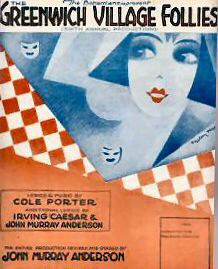
Greenwich Village Follies opened at The Shubert Theatre, NYC, 1924. Image courtesy sondheimguide.
In the 1920s, Porter wrote many new songs, but the only people who ever heard them were guests at his parties. His breakthrough in popular music finally came in 1932 with a stage show called The Gay Divorcee starring Fred Astaire.
Among Cole Porter's well known scores for stage are, The Greenwich Village Follies, Panama Hattie, Mexican Hayride, Leave it to Me, and Kiss Me Kate. His popular music for Hollywood movies include scores for the films: Anything Goes, Rosalie and Something to Shout About. Topping Cole Porter's long list of enduring love songs are, "Night and Day," "Begin the Beguine" (a mega-hit song for Artie Shaw in the Swing Era), "You're the Top" and "In the Still of the Night."
Cole Porter died in 1964 in Santa Monica, California.
Photo credit for Home Page: Tin Pan Alley. Photo courtesy wikipedia.
Text based on Riverwalk Jazz script by Margaret Moos Pick ©2002


